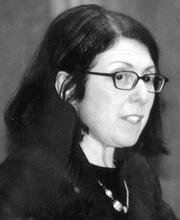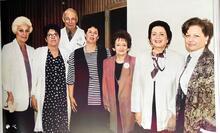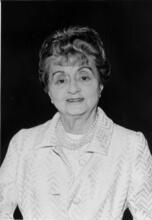Adele Rosenwald Levy
Philanthropist Adele Rosenwald Levy demonstrated her leadership skills and her passion for the Jewish community when she helped inspire American Jews to donate even more to aid Holocaust survivors than they had given to support the war effort. During World War II, she became first chair of the National Women’s Division of the United Jewish Appeal and a board member of the Jewish Joint Distribution Committee. She was named Woman of the Year by the Federation of Jewish Philanthropies and Outstanding Jewish Woman of 1946 from the National Council of Jewish Women. Although UJA asked much of its members during the war, Levy ran a fundraising campaign in 1947 that raised an unprecedented $170 million to aid Holocaust survivors whose situation “not even the most pessimistic…had foreseen.”
Article
Adele Rosenwald Levy used her affluence to promote public-spirited philanthropy and Jewish causes. Active in thirty-five charitable, artistic, and community organizations, Levy never failed her father’s principle that those of good fortune should assume “the obligations that come with wealth.”
Adele Rosenwald Levy was born in Chicago on July 19, 1892, one of five children of Julius Rosenwald, a Chicago merchant and philanthropist who established the Julius Rosenwald Foundation in that city. In 1911, she married Armand Deutsch, a childhood neighbor. They had two sons: Richard Deutsch and Armand Deutsch Jr., a film and stage producer. She and Deutsch divorced sometime before 1927, when she married Dr. David M. Levy, a child psychologist whom she had met at the Institute for Juvenile Research in Chicago.
Upon moving to New York, Levy entered public life in a manner considered acceptable for a woman of her class. Her responsibilities and honors suggest a genuine capacity for leadership. At different times in her career, Levy contributed to the Citizens Committee on Children of New York City, Play Schools Association, and Stadium Concerts, Inc. She sat on the board of trustees of Brandeis University and on the executive committees of the Museum of Modern Art, New York State Youth Commission, New York City Youth Board, and the Wiltwyck School for Boys, where she served as first vice president. Levy collected awards for her service as well: Woman of the Year from the Federation of Jewish Philanthropies, and Outstanding Jewish Woman of 1946 from the National Council of Jewish Women.
During World War II, Levy became the first chair of the National Women’s Division of the United Jewish Appeal (UJA). She also served as vice-chair of the Citizens Committee on Displaced Persons and as a member of the executive committee and board of directors of the Jewish Joint Distribution Committee, where she contributed to the monthly bulletin.
Levy’s most significant efforts came after the war when she helped to direct the UJA in a time of frantic fund-raising to aid the survivors of the Holocaust. As a member of the UJA’s executive committee for the campaign of 1947, Levy faced the problem of asking American Jews to contribute $170 million, more than UJA had asked of its member communities during the war. Levy told the committee that they faced a situation “which not even the most pessimistic of outstanding governmental authorities had foreseen.”
Levy demonstrated her commitment to the arts when she and her husband donated their collection of thirty-one fine paintings, including Cézanne’s Château Noir—her favorite—and works by Renoir and Degas, to the Museum of Modern Art in New York and a number of other museums across the country. Levy came to her opportunities through the possession of her father’s wealth, but she understood the power of money to mend the world.
Adele Rosenwald Levy died in New York City at Mount Sinai Hospital after a short illness on March 12, 1960.
Adele Rosenwald Levy, July 19, 1892–March 12, 1960 (1961).
AJYB 62:451.
Levy, Adele. “Destination Unknown.” The JDC Digest (October 1942): 1–2.
Obituary. NYTimes, March 13, 1960, 86:3.
Raphael, Marc Lee. A History of the United Jewish Appeal, 1939–1982 (1982).
Urofsky, Melvin I. We Are One!: American Jewry and Israel (1978).

![roisman.jpg - still image [media] roisman.jpg - still image [media]](/sites/default/files/styles/medium/public/mediaobjects/roisman.jpg?itok=7iKIF0ev)





